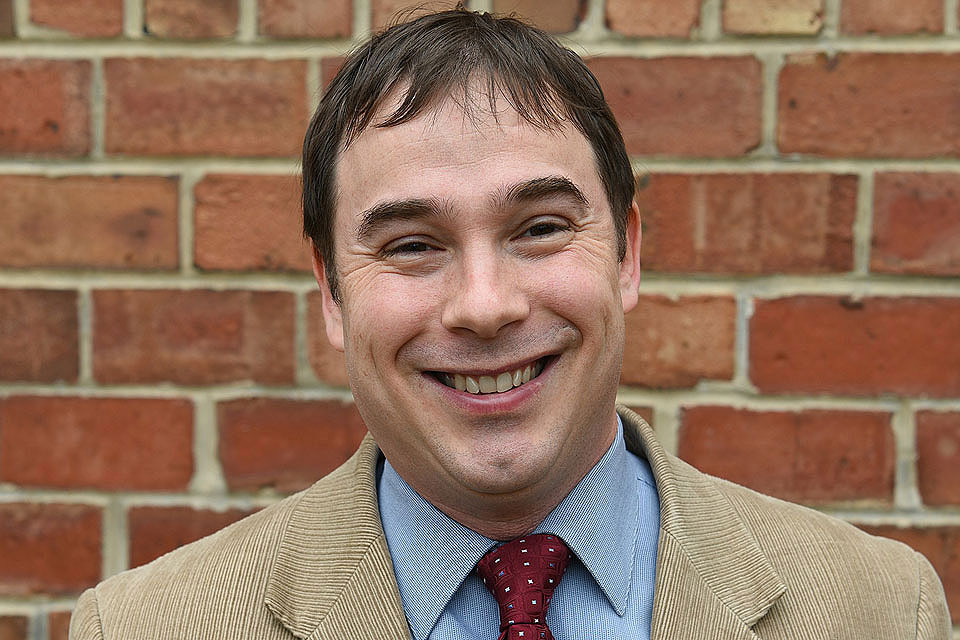New Study from SLU Psychologist Examines Gambling Addiction During COVID-19
A Saint Louis University researcher is studying the unique impacts of the COVID-19 pandemic on mental health, specifically among those with addiction and gambling disorders.
As stay-at-home orders took effect across the country and non-essential businesses closed their doors to the public, Jeremiah Weinstock, Ph.D., associate professor of psychology at SLU, wanted to know the long-term effects of social isolation on those suffering from addiction to gambling, clinically known as gambling disorder.
Weinstock, whose research focuses on addiction with an emphasis in gambling disorders, partnered with Carla J. Rash, Ph.D., of the University of Connecticut Health Center to study the potential outcomes of the pandemic. Weinstock and Rush devised a survey-based longitudinal study, “Changes in Gambling Behavior Due to COVID-19.”
The study is still in the data collection phase. The researchers have surveyed 400 individuals with gambling problems from all over the United States. Participants have completed three surveys and will complete one more assessment at the end of September.
Weinstock hopes the study will provide insight into the behaviors and coping mechanisms that those affected by gambling disorder might turn to as they are forced to stay home from casinos and other gambling venues.
“It’s unclear what happens to [those suffering from gambling disorder] during a period of forced abstinence,” Weinstock said. “It’s a moment that will allow some people, not everybody, to pause and engage in reflection while other people will be very distraught by the fact that they can’t gamble because it’s a primary means by which they cope and deal with the world.”
Some gamblers, Weinstock said, may be able to use this time as an opportunity to quit gambling. Others, however, may turn to other addictions such as alcohol or tobacco use to fill the void, while others still may turn to other forms of gambling online.
Weinstock hopes that the dissemination of data collected from this research will be useful to future policymakers and treatment providers, among other relevant communities, in creating policy to support those with gambling disorder and help them receive the treatment they need.
The study received funding from the SLU Research Institute’s Rapid Response COVID-19 Seed Fund, which was established in Spring 2020 to empower and support researchers as they seek to answer important questions that arise in the wake of the COVID-19 pandemic. Weinstock and Rush also received support through the University of Connecticut’s Institute for Collaboration on Health, Intervention, and Policy (InCHIP).
Typically, those with gambling disorder are also affected by other psychiatric problems such as depression and anxiety. Weinstock and Rush hope to determine trends of potential long-term implications of extended periods of forced abstinence on the well-being and mental health of survey participants.
“The Jesuit mission of social justice and caring for all directly applies to people suffering from addiction,” said Weinstock.
Gambling addiction is often associated with a great deal of shame and is often something that those affected by it try to hide from their families and other loved ones. The stigma that surrounds gambling disorder, Weinstock said, often prevents those affected from seeking treatment.
“Nobody chooses to have a gambling problem, to go wreck their lives financially and to lose the trust of their family members,” Weinstock said. “Nobody willingly decides to go do that. There’s something else driving this behavior and I want to understand that and to help other people understand that. I want to make lasting and meaningful changes.”
This is a part of a series of stories from the Office of the Vice President for Research highlighting SLU’s Rapid Response COVID-19 Seed Fund Program. MaryCait Dolan/Office of the Vice President for Research.


















